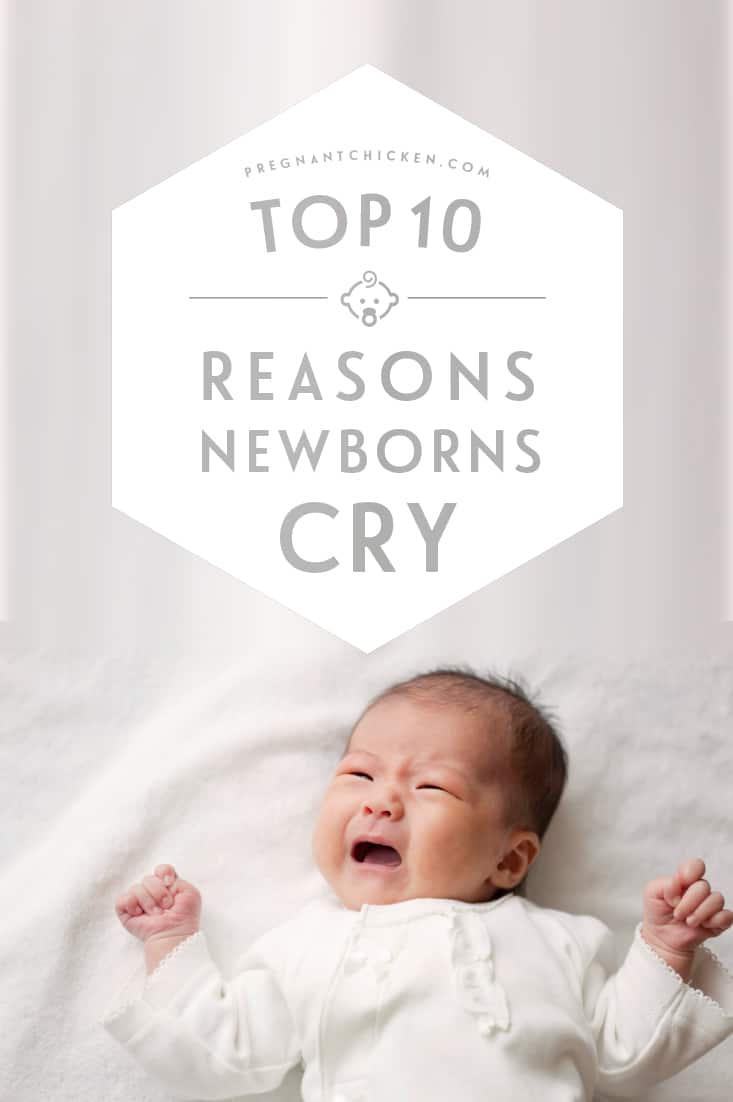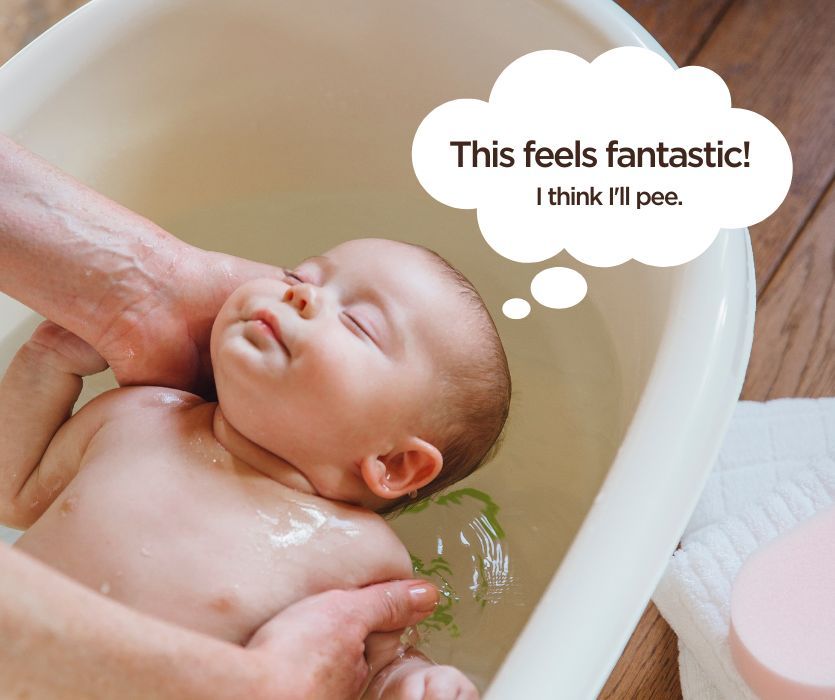Reasons a newborn baby cries:
Everybody knows that babies cry. And while a baby crying has been stressing mamas out since our cave-dwelling days, except in extreme cases, the fact that your baby is crying has nothing to do with your mothering skills.
Try to remember that as you rock your inconsolable baby in the middle of the night: It’s not your fault. Your baby’s crying isn’t an indictment; it’s actually your little one’s way of trying to communicate with you.
And here’s something really exciting – it’s possible to “learn” your baby and pretty soon, you may be able to decode these cries with no problem at all.
In an effort to help you become fluent in your baby’s language (ear-splitting as it may be), I’ve put together a quick list of the 10 most common reasons a newborn baby cries. This checklist is great for helping you determine why your baby is wailing, and what you can do to help.
#1. Hunger:
Obvious, right? This is generally the top reason parents assume a newborn is crying. And given the fact that newborns eat around the clock, odds are they’re right. However, keep in mind that things like growth spurts can increase your baby’s appetite – so even if it doesn’t seem like your newborn “should” be hungry (since he just ate 30 minutes ago), don’t rule hunger out too quickly.
Not sure when/how much your newborn should be eating? Check out these sample newborn sleep and feeding schedules.
#2. Dirty Diaper:
I’m not speaking from experience here, but sitting in one’s own waste seems like it would be pretty stinking (no pun intended) uncomfortable, doesn’t it? While wet diapers aren’t generally as uncomfortable for babies (unless your newborn has a diaper rash), most babies understandably hate the feeling of a dirty diaper.
#3. Neurological Immaturity:
This may be one of the more surprising reasons your little one cries. Simply put, your newborn is very new. Her brain and neurological systems are still forming, which is why she relies so much on YOU to soothe her and regulate her emotions. This is why Dr. Harvey Karp calls the first 3 months of your newborn’s life the “fourth trimester”.
#4. Colic:
Yes – the dreaded “C” word. Generally, colic is defined as long periods of inconsolable crying (3 hours or more) – especially in the mid to late evening – for babies between the ages of 2 weeks and 4 months. While there’s no definitive cause of colic, it’s often assumed colic is caused by gas or tummy trouble. Many of the parents I’ve worked with report that cluster feeding every evening helps to ward off fussiness; other parents use skin-to-skin contact during the colicky spells as a way to provide comfort.
#5. Boredom:
Believe it or not, your newborn can get bored. If your baby is alert, fed, dry, and comfortable, his tears may have everything to do with the fact that he’s bored, and wants a little entertainment.
#6. Overstimulation:
Your newborn can get bored; she can also get very over-stimulated! While babies love brief, gentle play (think shaking a rattle, or looking at a picture book), prolonged period of activity (especially loud activity that involves lots of people and chaos) usually prove to be too much for newborns to handle.
#7. General Discomfort:
Tummy pain is a common affliction for newborns, but more general discomfort (think itchy pajama tag, a pinched finger from the car seat, a stray hair that’s gotten wound tightly around baby’s toe, etc.) can cause problems, too.
#8. Too Warm/Too Cold:
Babies feel temperature extremes the same way we do. Generally, though, we parents tend to overdress our babies (to ward off chills, as my grandmother would say!). So in my experience, babies are more likely to fuss because they’re overheated. It’s best to keep your baby’s nursery at a temperature that would be comfortable for you, and to dress your baby in light, breathable layers. Your baby’s skin should be cool to the touch, but not frigid. Sweaty? Not good.
#9. Wants Mom:
Lest you forget, mama – you’re popular! While it might not seem like it in those early days after birth, your newborn definitely knows your scent, your feel – and she likes it a lot. So don’t be surprised if your newborn often cries simply because she wants to be near you! A great way to satisfy your newborn’s desire for closeness is to wear your baby. Provided you follow proper safety precautions, baby wearing can be a great way to keep your newborn close while you go about your daily activities.
#10. Needs Sleep NOW:
This last one is a reason that I end up talking to parents about a lot. Here’s the thing – newborns don’t always fall asleep when they become tired. Instead, a newborn may start to rub his eyes, yawn…and then, if he hasn’t been helped to sleep, within a few minutes, he’ll start fussing (and eventually wailing). Newborns tend to go from sleepy to overly-tired very quickly; that’s why it’s so important to watch for those early sleepy cues, and then to get your baby down for the next sleep session quickly.
Of course, this said, I know that sleep is one of the toughest things to sort out (especially for new parents). That’s exactly why I created a free e-Book, 15 Baby Sleep Facts New Parents Need To Know; it outlines key facts and recommendations about how to help your newborn sleep soundly, right from the start. Good luck decoding your baby’s cries! And, if you can’t ever tell between a “hunger” cry versus a “sleepy” cry, if all else fails, you now have a checklist to help you out.
Related: The Witching Hour: How to Handle Your Newborn Baby’s Evening Fussiness





Leave a Comment